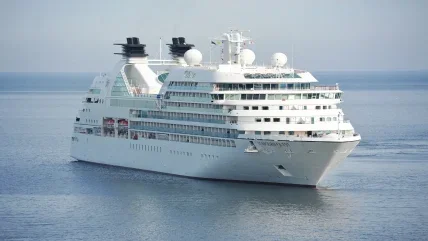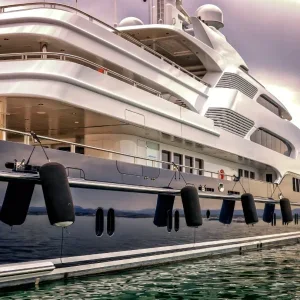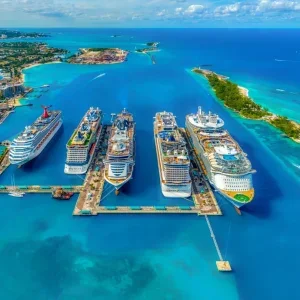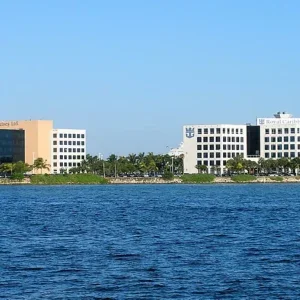
In recent years, the cruise industry has undergone a profound transformation, not only in response to evolving consumer preferences but also in recognition of its environmental responsibilities. As the world grapples with the consequences of biodiversity loss and ecosystem collapse, the cruise industry finds itself at a crossroads, compelled to balance economic imperatives with environmental stewardship. This article seeks to explore the economic implications of environmental sustainability within the cruise industry, highlighting both challenges and opportunities for stakeholders.
Economic Drivers of Environmental Sustainability
While the pursuit of environmental sustainability may seem at odds with traditional business objectives, there is a growing recognition within the cruise industry that such efforts are not only ethically imperative but also economically advantageous. Several key factors drive this shift towards environmental sustainability:
- Consumer Preferences: Increasingly, consumers are prioritising sustainability in their travel choices, favouring cruise lines that demonstrate a commitment to environmental stewardship. As such, cruise companies that invest in sustainable practices can gain a competitive edge and attract a growing segment of environmentally conscious travellers.
- Regulatory Pressures: Stringent environmental regulations, both at the international and regional levels, compel cruise operators to adopt cleaner technologies and practices to comply with emissions standards, mitigate pollution, and protect marine ecosystems. Failure to meet these regulatory requirements can result in significant fines and reputational damage.
- Cost Savings: While the initial investment in environmentally sustainable technologies and practices may be substantial, over the long term, they can result in cost savings through reduced fuel consumption, lower emissions-related expenses, and decreased waste management costs. Additionally, by minimising environmental risks, cruise companies can avoid potential liabilities and associated financial losses.
- Brand Reputation: Environmental sustainability is increasingly intertwined with brand reputation and corporate social responsibility. Cruise companies that demonstrate a genuine commitment to environmental stewardship can enhance their brand image, foster customer loyalty, and attract socially responsible investors.
Navigating Economic Challenges
Despite the economic incentives for environmental sustainability, the cruise industry faces several challenges in implementing and scaling up such initiatives:
- Capital Intensity: The transition to environmentally sustainable technologies and practices often requires significant capital investment, which may pose challenges for smaller or financially constrained cruise operators. Access to financing mechanisms and incentives, such as government grants or subsidies, can help alleviate this barrier.
- Operational Complexity: Integrating sustainable practices into existing cruise operations can be complex and may require substantial changes to infrastructure, processes, and supply chains. Cruise companies must carefully manage this transition to minimise disruption to their business operations and guest experience.
- Market Volatility: The cruise industry is inherently susceptible to market fluctuations, geopolitical uncertainties, and external shocks, which can impact investment decisions and the pace of environmental sustainability initiatives. Maintaining a long-term perspective and strategic flexibility is crucial in navigating these economic uncertainties.
- Supply Chain Risks: Ensuring the sustainability of supply chains, including sourcing of food, fuel, and other consumables, presents a challenge for cruise companies operating in a globalised marketplace. Collaborative partnerships with suppliers and industry stakeholders can help mitigate supply chain risks and drive collective action towards sustainability.
Opportunities for Innovation and Collaboration
Amidst these economic challenges, there are abundant opportunities for innovation and collaboration within the cruise industry:
- Technology Adoption: Continued investment in research and development of clean energy technologies, such as liquefied natural gas (LNG) propulsion, hydrogen fuel cells, and battery-electric systems, can enable cruise companies to reduce their environmental footprint while enhancing operational efficiency.
- Data-Driven Decision Making: Leveraging data analytics and predictive modelling can help cruise companies optimise their operations, identify areas for environmental improvement, and track progress towards sustainability goals. Real-time monitoring of emissions, energy consumption, and waste generation can enable proactive management and resource allocation.
- Public-Private Partnerships: Collaborative initiatives between cruise operators, government agencies, environmental organisations, and academic institutions can drive innovation, knowledge sharing, and capacity building in sustainable tourism practices. Public-private partnerships can also facilitate access to funding, technology transfer, and regulatory support.
- Community Engagement: Engaging with local communities and indigenous stakeholders is essential in fostering sustainable tourism practices that respect cultural heritage, preserve natural resources, and promote socio-economic development. Cruise companies can support community-based initiatives, invest in infrastructure projects, and contribute to conservation efforts in port destinations.
Conclusion: A Path Forward Towards Sustainable Growth
In conclusion, the pursuit of environmental sustainability in the cruise industry is not only a moral imperative but also an economic opportunity. By embracing sustainable practices, leveraging innovative technologies, and fostering collaboration across stakeholders, cruise companies can mitigate environmental risks, enhance operational efficiency, and strengthen their competitive position in the global marketplace. As we navigate the complex interplay between economic growth and environmental stewardship, let us chart a course towards a more sustainable future for the cruise industry, one that balances profitability with planet-friendly practices and delivers value to both shareholders and society.






